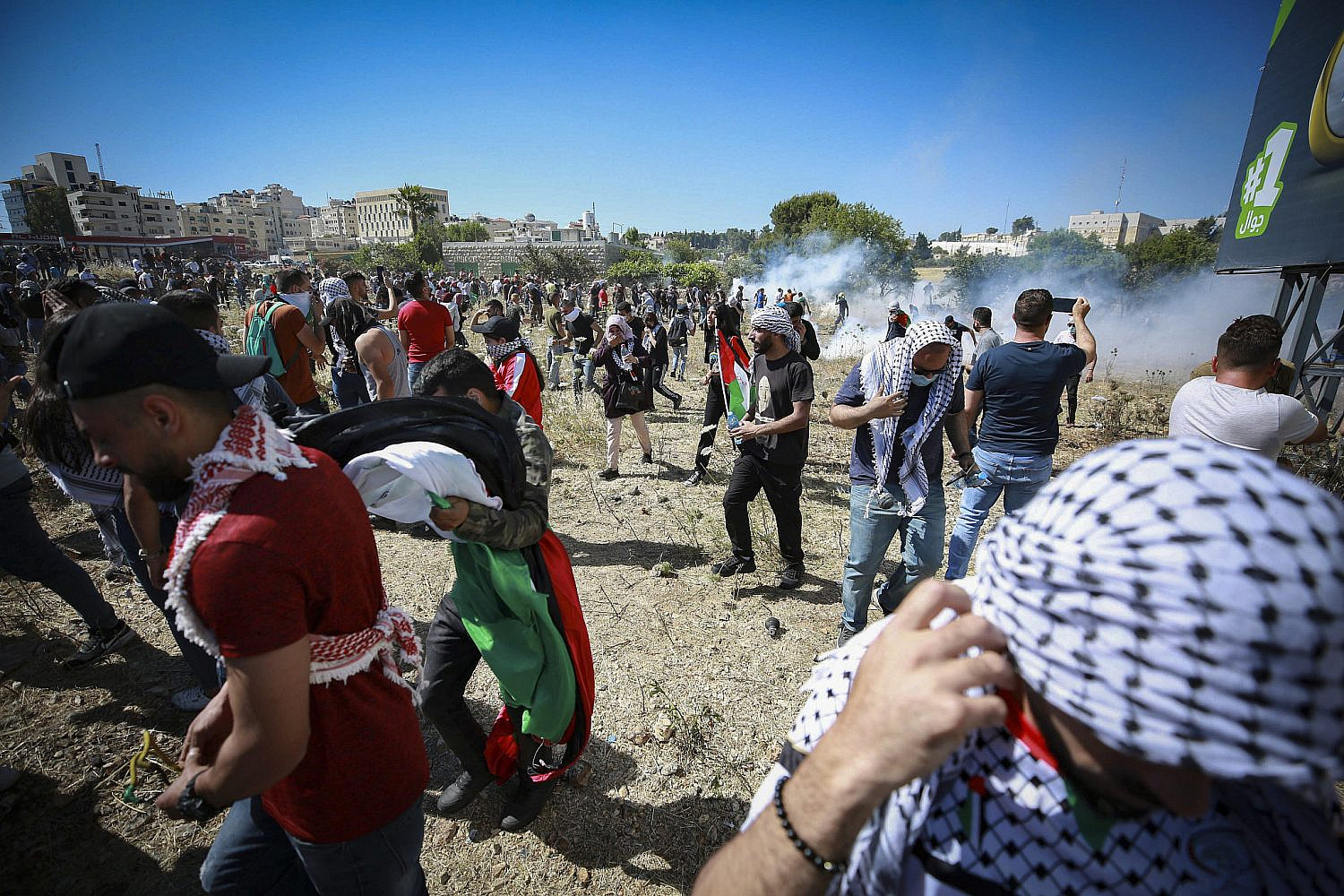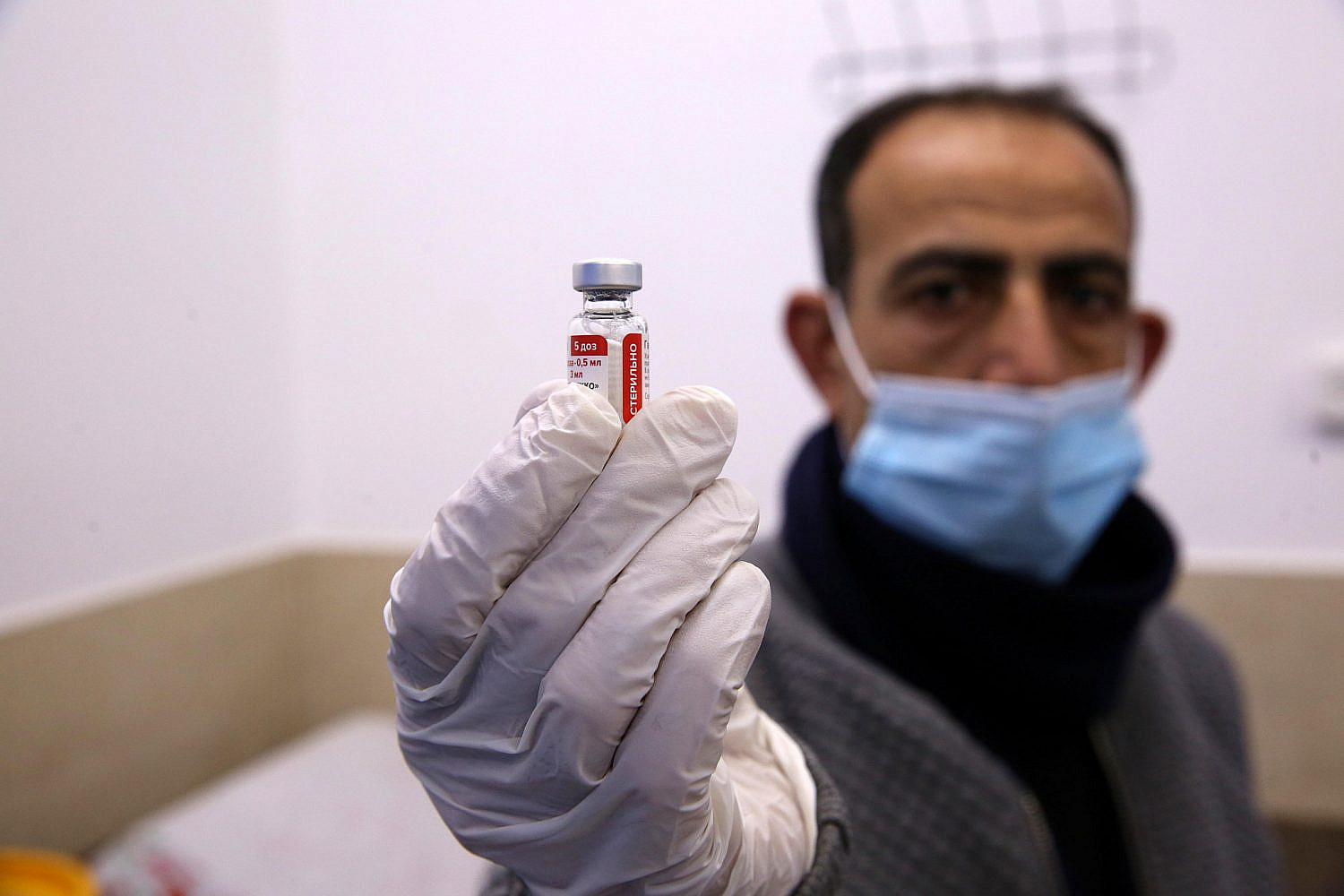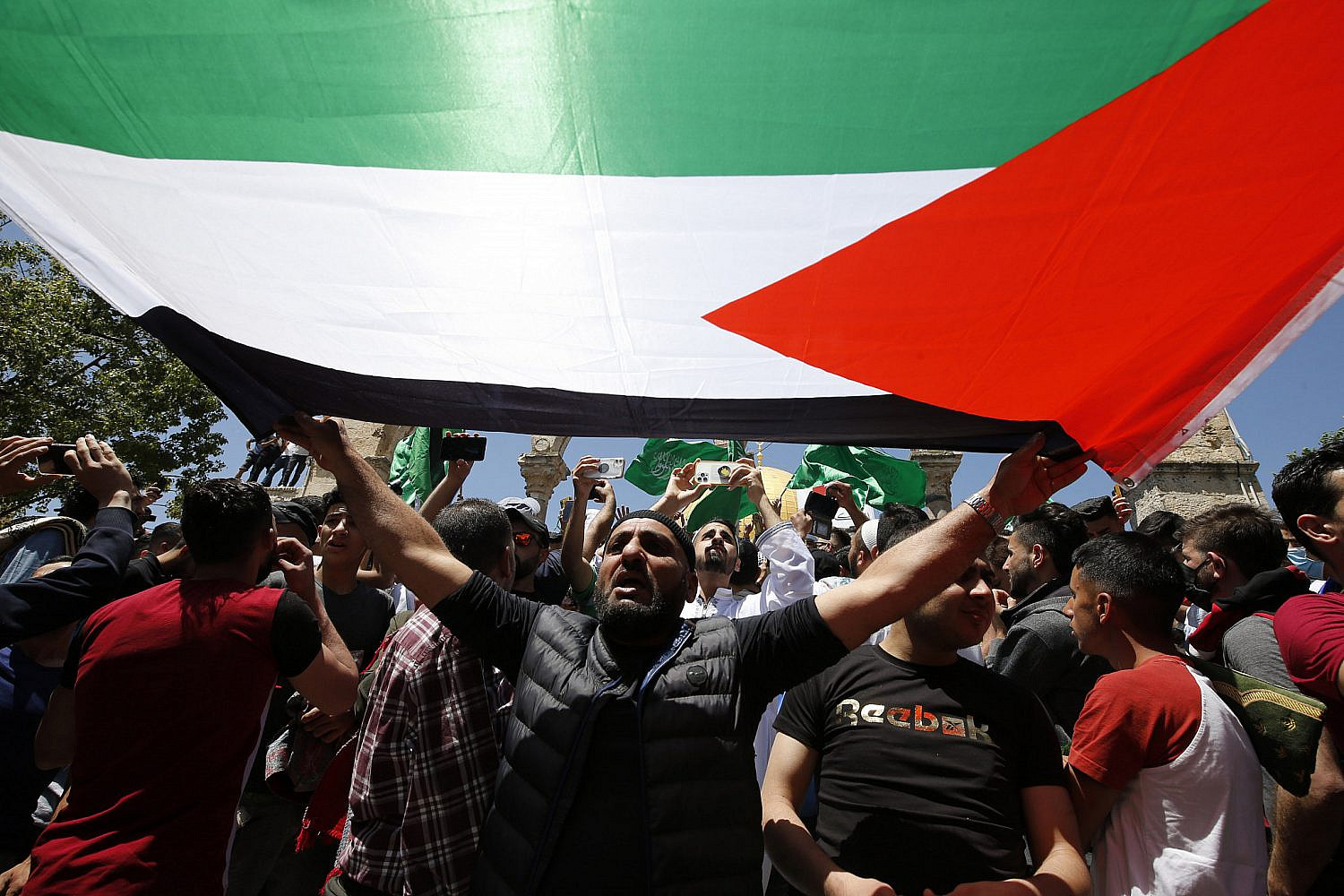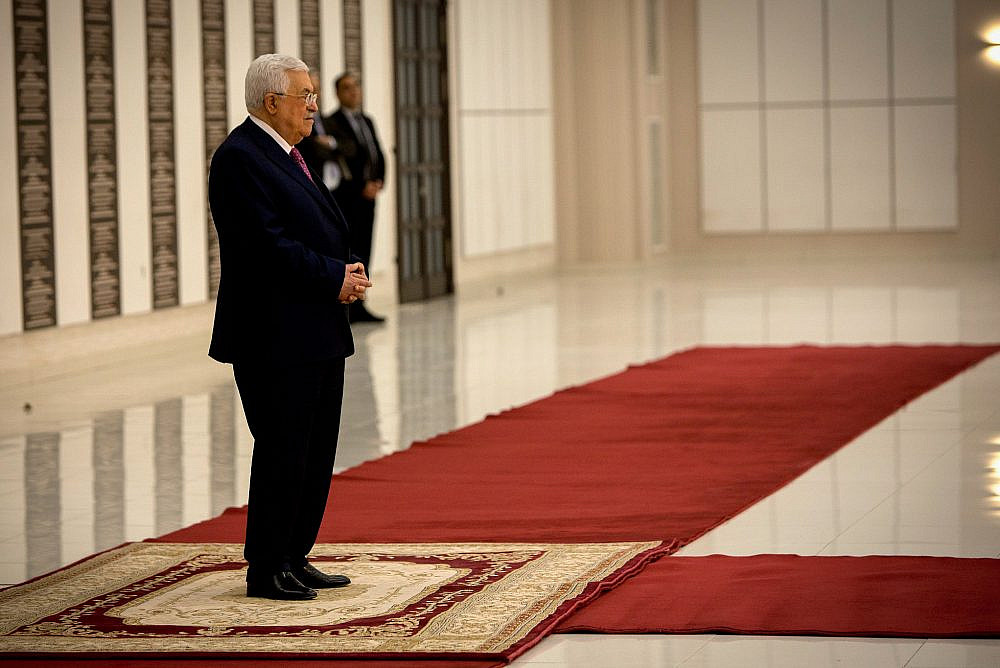The past two months have been an overwhelming and transformative time for Palestinians. It has been a period full of sadness and fear in the face of Israeli violence, but also full of inspiration for bringing about change and an end to Israel’s oppression of the Palestinian people. Amidst this historic moment, one crucial factor has hardly changed at all: the declining role of the Palestinian Authority and, with it, the complete cessation of the Oslo Accords process.
This past week — as if to emphasize its own decline — the PA became embroiled in a major scandal when media reports found that the Ramallah-based government had agreed to a shipment of one million surplus doses of the Pfizer vaccine from Israel to fight the COVID-19 pandemic in the occupied territories.
The doses, however, were set to expire within a few weeks, and were planned to be swapped for a shipment of new vaccines that would be given to Israel instead. Following public outrage at the humiliating deal, the PA cancelled the agreement. (This does not exculpate Israel from its role in the belated and insufficient deal; as Ghada Majadle of Physicians for Human Rights-Israel explained, “Instead of accepting responsibility and supplying vaccines without delay to the entire population, Israel is conducting horse-trading over the lives and health of millions of people.”)
This blunder is the latest evidence not only of the PA’s gross incompetence, but its utter detachment from the lives and aspirations of the Palestinian people. Last month, in the days leading up to the Israeli Supreme Court’s anticipated decision regarding the ethnic cleansing of families from the Jerusalem neighborhood of Sheikh Jarrah, Palestinians organized mass demonstrations across the occupied territories and Arab towns inside Israel. These protests were largely led by young Palestinians, many of whom had no affiliation with any political party, including the ruling Fatah party that controls the PA and the Palestine Liberation Organization.

In many ways, this kind of grassroots uprising was almost inevitable. For years, the PA, which claims to be the national leadership of the Palestinians, has not been fulfilling its role of representing the interests of its people. Knowing their leaders in Ramallah would do nothing to help them, Palestinians were left with no choice but to unite and take to the streets themselves, using tactics reminiscent of the First Intifada to express their rage. They made their demands crystal clear: they want an end to the oppression of our people, and to march together toward our freedom.
Sadly, the PA does not seem interested in marching with us. During those weeks of protests, the PA was almost completely silent: while every Palestinian city, whether occupied in 1948 or 1967, was rising, the PA leadership appeared to be watching from a distance as if they were an observing body. Its security forces, meanwhile, were busy carrying out arrests of numerous activists or harassing and intimidating protestors in a desperate attempt to assert its authority. The recent vaccine scandal, and the public backlash to it, further shows just how little power and respect the PA wields today.
A passive approach
Since the 1990s, the Oslo Accords — which established the PA as a subcontractor for the occupation — have tried to turn the Palestinian cause into an administrative matter rather than a struggle for freedom. The PA led us to believe that the maximum we should aim to achieve in our lives is an Israeli-issued permit, or a successful coordination for medical treatment in an Israeli hospital. This is a passive approach that pretends that our problem is merely with daily logistical issues, and that by just solving these matters, Palestinians will be satisfied.
The recent uprising has shown how much the PA’s approach is out of touch with its people. In fact, the PA is perhaps the only Palestinian institution left that seriously believes that a two-state solution can be fulfilled, or that the Oslo Accords can provide a path toward any kind of liberation.
But for Palestinians, that ship has sailed a long time ago. Since Oslo’s signing, Israel has built thousands of illegal settlements and moved tens of thousands Israeli settlers into the occupied territories — a war crime that blatantly violates international law. The movement of basic goods and services — including medical supplies like COVID-19 vaccines — still fall under the control and taxation of Israeli border authorities. These facts on the ground are the only thing determining the path we Palestinians are being given: an apartheid regime from the river to the sea.

It is unsurprising, then, that the PA and its aged president, Mahmoud Abbas, have lost nearly all trust and legitimacy among Palestinians. The words of their officials are understood as nothing more than lip service; it is almost impossible to keep track of the number of times the PA has threatened to end security cooperation with Israel, only to backtrack moments later.
So how is it that the PA is still viewed by so many as representing the Palestinian people, despite clearly being an illegitimate body? The ugly truth is that the main reason the PA still exists is because Israel and the international community need it to keep the so-called “status quo.” They need the PA to maintain “stability” by continuing to pay the salaries of tens of thousands of Palestinians, and by policing their communities in the service of the Israeli occupying army.
The European Union, too, has been doing everything in its power to keep the PA alive. The EU, which is the biggest provider of external assistance to the PA, recently completed a joint strategy program ironically titled “Towards a democratic and accountable Palestinian State.” This bilateral assistance, which included a multi-annual financial allocation of €1.28 billion, focused on specified priority sectors including governance reform and salaries of officials and members of the security forces.
Despite the title, years of EU patronage have in fact allowed Abbas and his party to do away with any separation of power, enabling the president to control multiple branches of government and make decisions without any form of accountability.
The last national elections held in the Palestinian territories were in 2006; when Fatah lost the parliament to Hamas, the EU joined the United States in sanctioning and destabilizing the Palestinian government. When elections were finally set for the summer of 2021, the EU was almost completely silent, allowing Abbas to cancel the elections without fear of international consequences. Even during last month’s mass protests, the EU did little to support Palestinians because their “partner” in Ramallah itself had no role to play.
A leadership we deserve
The events of the past two months have demonstrated how continuous support to the increasingly irrelevant PA has major political consequences. The Fatah-led government is not only leading Palestinians to lose any trust in peace negotiations, but is actually empowering its rival Hamas party and its approach of armed struggle as the only viable political alternative. It is not surprising that Hamas and its strategies have enjoyed a significant boost in popularity these past weeks; despite the fact that many Palestinians do not agree with its ideology and resent its authoritarian rule in Gaza, Hamas is still seen by some as the only party achieving any impact or results for the Palestinian people.

The international community is aware of this and fears what might come next. They know that their irresponsible empowerment of both the PA and Hamas is diminishing any chance for the rise of new faces in a new leadership — yet they are doing nothing to reverse it.
But that does not mean it is too late for them to change course.
Even without an international shift in policy, new groups and initiatives are emerging among Palestinian activists to pave a different future. For example, Jeel al-Tajdeed al-Democraty (a project in which we are involved) seeks to create a virtual, alternative parliamentary list for Palestinian youth from all around the world. While it began as a challenge to the now-cancelled Palestinian elections, it continues to offer a model for ways to build an inclusive national identity that can organize for democratic change and revive the Palestinian political system.
The growth of such initiatives, together with the popular movement on the streets of Palestine, shows that there is a growing need to bring to life a different leadership through a fair election, in which Palestinians can freely choose their leaders. We need newer methodologies than the ones that have been used to resist our oppression so far. And we need fresh, young, radically-minded leaders to run the show, and finally represent the will of Palestinians in the way they deserve.

